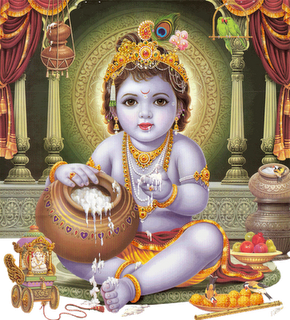 |
| Gods of India |
Siempre había creído que todo lo concerniente al ateísmo estaba ya más que preconcebido en los textos de Democrito, Epicuro y Protagoras. Y en la época más moderna en los Enciclopedistas franceses de la Ilustración del siglo XVIII con Diderot, D.Alembert, y el mas furibundo de ellos, el Barón D.Holbach. Mas es para mí un descubrimiento saber que fue un hindú el primer filosofo ateo de la Historia. Este personaje se llamaba Charvaka, un filósofo materialista que vivió en el siglo VI antes de Cristo. Él fundó una escuela de filosofía abiertamente ateísta y empírica llamada Lokayata o Charvaka. Charvaka escribió el texto en sanscrito, Barjaspatia Sutra, donde criticaba las doctrinas hinduistas, < la existencia del alma, el Karma, la reencarnación>. Su obra fue totalmente prohibida por varios monarcas religiosos, y finalmente desaparecida. Su doctrina ha sobrevivido sin embargo a través de textos jaimistas, budistas, e hinduistas. Charvaka era profundamente escéptico respecto a los dogmas védicos. Él veía al mundo como algo cambiante y fortuito, y consideraba que la meta de la Humanidad era la búsqueda de la felicidad y la supresión pragmática del sufrimiento. Él mantenía la teoría de que el alma no existe, púes consideraba que lo que es llamado así es en realidad una manifestación física del cuerpo. Para él la percepción es la única fuente de conocimiento objetivo, por lo que el razonamiento es rechazado a no ser que se limite meramente a describir.
La filosofía de Charvaka tenía un curioso sistema ético. Proclamaba que el único ideal admisible es la evitación del dolor y la búsqueda del placer, ya que la vida terrenal es la única que tendremos. Para los Charvaka no existe la vida futura y todas las religiones son pura fantasías desde donde se establecen centros de poder. Los clérigos son haraganes que hablan contra el materialismo, el comercio. A favor de la espiritualidad por que no les gusta trabajar y pueden ganar favores y riquezas, basándose en la ignorancia del pueblo o gente común, los Vedas son un montón de palabras vacías y sin sentido, como todos los libros sagrados. Pará los seguidores de Charvaka, Dios simplemente no existe.
Conclusión: Este señor estaba en contra del sistema religioso de la India, que a través del Brahmanismo tenia y aun tiene dividida a la sociedad de la India en castas superiores e inferiores. La imagen de la India es vista siempre desde un prisma entre místico o contemplativo. Sobre todo si leemos los textos sagrado como Upanishads, El Bagavad Gita, o el Dhamapada. Charvaka desmontó ese mundo de los Vedas con su filosofía ateísta y nihilista.
I always thought that everything concerning atheism had already been well documented in the texts of Democritus, Epicurus and Protagoras. And during the modern era we have the illustrations of the French Encyclopedia in the 18th century with Diderot, D.Alembert, and the most vehement of them all, Baron D. Holbach. But it is something new for me to discover that the first atheistic philosopher in history was a Hindu. This person was called Charvaka, a materialistic philosopher who lived in the 6th century before Christ. He founded a school of an open atheistic and empirical philosophy called Lokayata or Charvaka. Charvaka wrote the text in Sanskrit, called Barjaspatia Sutra, in which he criticized the Hinduism doctrines, < the existence of the soul, Karma, reincarnation>. His work was totally prohibited by several religious monarchs, and it disappeared in the end. His doctrine has survived nevertheless through the texts of the Jaimists, Buddhists and Hinduists. Charvaka was deeply skeptical with respect to the Vedic dogmas. He saw the world as something variable and fortuitous, and he considered that the goal of Humanity was the search of happiness and the pragmatic suppression of suffering. He maintained the theory that the soul does not exist as he considered that it is in fact the physical manifestation of one´s body. For him perception is the only source of objective knowledge, thus reasoning is rejected unless it is merely used to describe.
 |
| Brahma |
The philosophy of Charvaka is supported by a peculiar ethical system. He proclaimed that the only permissible ideal is the avoidance of pain and the search for pleasure, since the terrestrial life is the only one that we have. For the Charvaka future life does not exist and all the religions are pure fantasies from where the power nuclei have been established. The clergymen are just lazybones who spoke against materialism, commerce. They were in favor of spirituality so that they did not have to work and they could gain favors and wealth just by taking advantage of the ignorance of the simple folk or common people; to them the Vedas are just a pile of empty words and without any sense, just like all sacred books. For the followers of Charvaka, God simply does not exist.
Conclusion: This gentleman was against the religious system of India, which through Brahmanism had been and still is divided into various castes within its society. The image of India has always been viewed through a prism that is mystical or contemplative. This is especially so if we were to read the sacred texts like the Upanishads, the Bagavad Gita, or the Dhamapada. Charvaka dismantled that world of the Vedas with its atheistic and nihilistic philosophy.


pues, gracias, Agustín, por presentarnos a este Charvaka,y sus ideas de placer y evitación del dolor
ResponderEliminarun saludo
Charvaka pudieramos decir que era un realista tangible.Una maravilla de escrito.
ResponderEliminarun fuerte saludo
fus